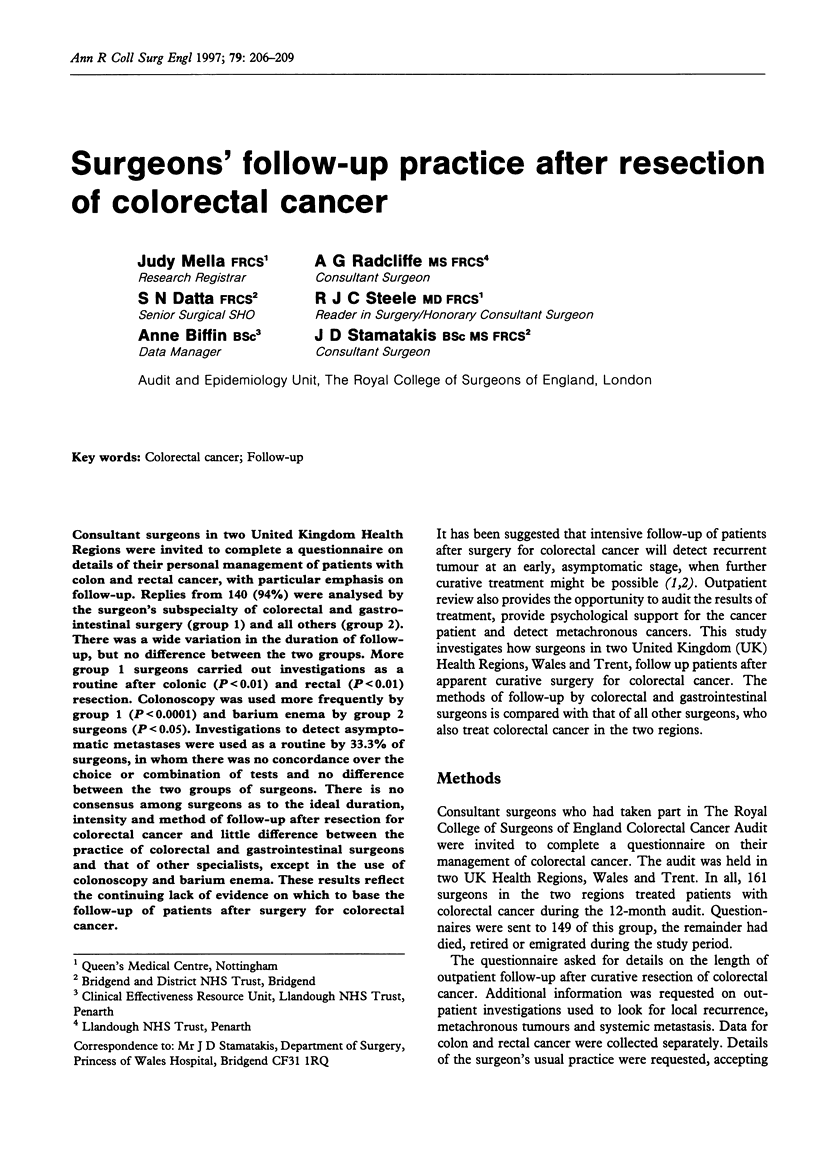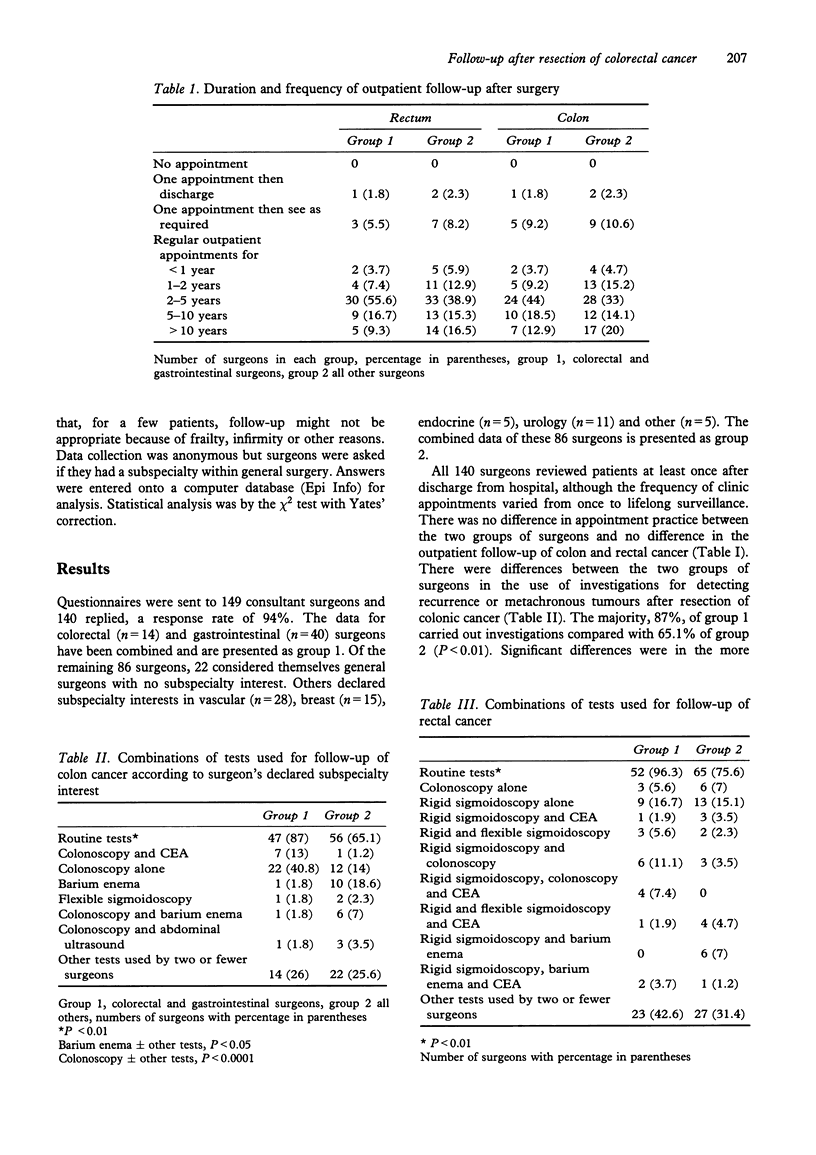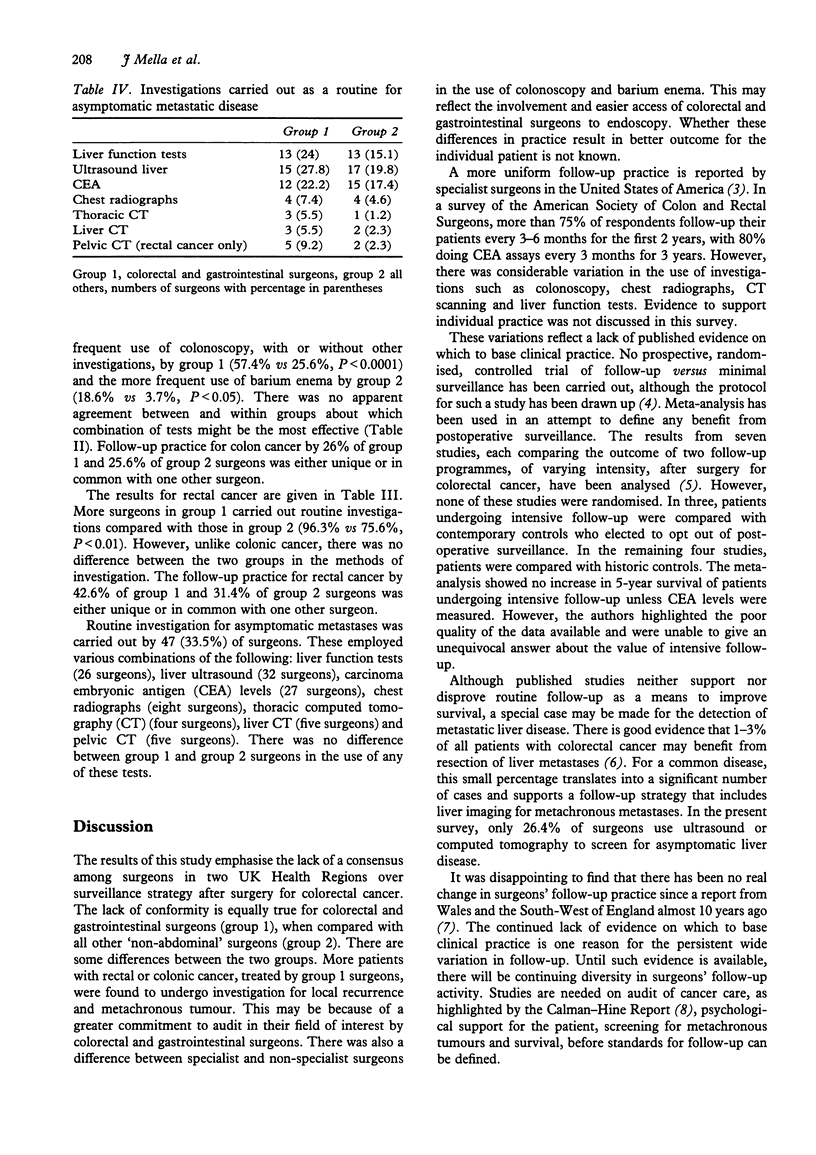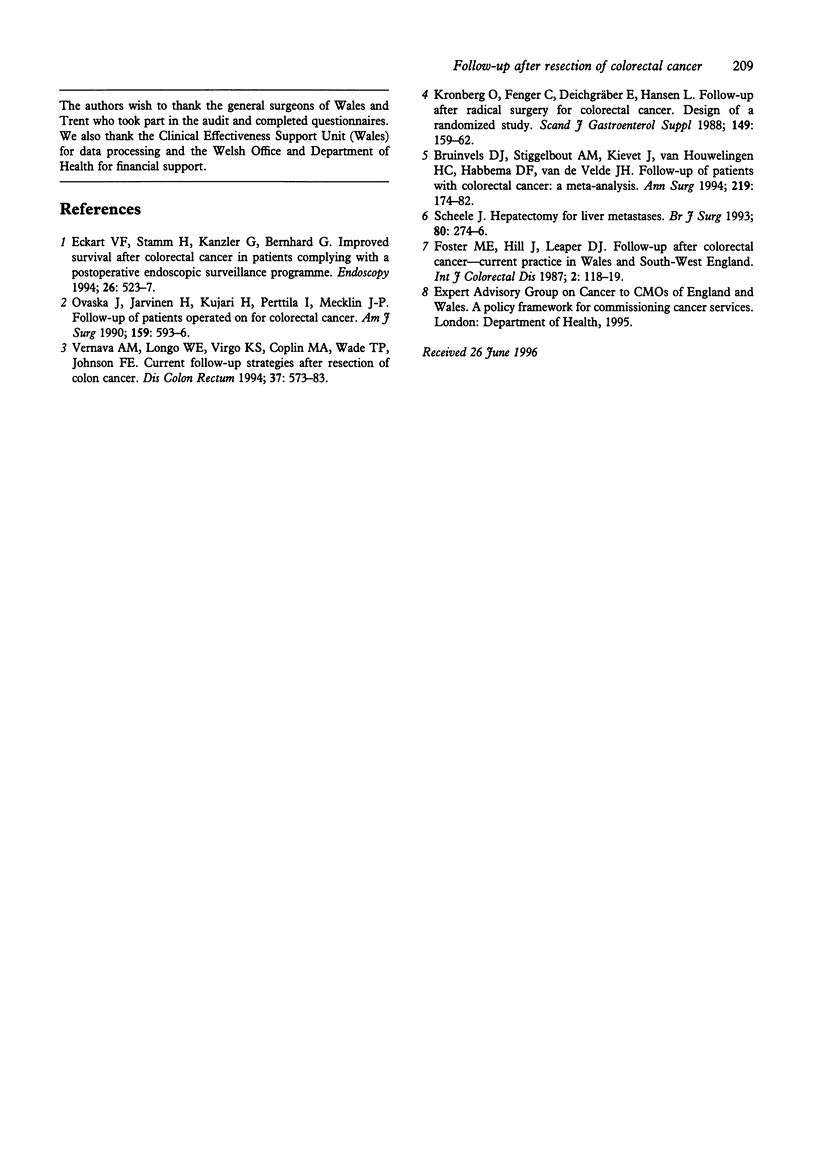Abstract
Consultant surgeons in two United Kingdom Health Regions were invited to complete a questionnaire on details of their personal management of patients with colon and rectal cancer, with particular emphasis on follow-up. Replies from 140 (94%) were analysed by the surgeon's subspecialty of colorectal and gastrointestinal surgery (group 1) and all others (group 2). There was a wide variation in the duration of followup, but no difference between the two groups. More group 1 surgeons carried out investigations as a routine after colonic (P < 0.01) and rectal (P < 0.01) resection. Colonoscopy was used more frequently by group 1 (P < 0.0001) and barium enema by group 2 surgeons (P < 0.05). Investigations to detect asymptomatic metastases were used as a routine by 33.3% of surgeons, in whom there was no concordance over the choice or combination of tests and no difference between the two groups of surgeons. There is no consensus among surgeons as to the ideal duration, intensity and method of follow-up after resection for colorectal cancer and little difference between the practice of colorectal and gastrointestinal surgeons and that of other specialists, except in the use of colonoscopy and barium enema. These results reflect the continuing lack of evidence on which to base the follow-up of patients after surgery for colorectal cancer.
Full text
PDF



Selected References
These references are in PubMed. This may not be the complete list of references from this article.
- Bruinvels D. J., Stiggelbout A. M., Kievit J., van Houwelingen H. C., Habbema J. D., van de Velde C. J. Follow-up of patients with colorectal cancer. A meta-analysis. Ann Surg. 1994 Feb;219(2):174–182. doi: 10.1097/00000658-199402000-00009. [DOI] [PMC free article] [PubMed] [Google Scholar]
- Eckardt V. F., Stamm H., Kanzler G., Bernhard G. Improved survival after colorectal cancer in patients complying with a postoperative endoscopic surveillance program. Endoscopy. 1994 Aug;26(6):523–527. doi: 10.1055/s-2007-1009027. [DOI] [PubMed] [Google Scholar]
- Foster M. E., Hill J., Leaper D. J. Follow-up after colorectal cancer--current practice in Wales and south west England. Int J Colorectal Dis. 1987 Jun;2(2):118–119. doi: 10.1007/BF01647704. [DOI] [PubMed] [Google Scholar]
- Kronborg O., Fenger C., Deichgräber E., Hansen L. Follow-up after radical surgery for colorectal cancer. Design of a randomized study. Scand J Gastroenterol Suppl. 1988;149:159–162. doi: 10.3109/00365528809096975. [DOI] [PubMed] [Google Scholar]
- Ovaska J., Järvinen H., Kujari H., Perttilä I., Mecklin J. P. Follow-up of patients operated on for colorectal carcinoma. Am J Surg. 1990 Jun;159(6):593–596. doi: 10.1016/s0002-9610(06)80074-7. [DOI] [PubMed] [Google Scholar]
- Scheele J. Hepatectomy for liver metastases. Br J Surg. 1993 Mar;80(3):274–276. doi: 10.1002/bjs.1800800302. [DOI] [PubMed] [Google Scholar]
- Vernava A. M., 3rd, Longo W. E., Virgo K. S., Coplin M. A., Wade T. P., Johnson F. E. Current follow-up strategies after resection of colon cancer. Results of a survey of members of the American Society of Colon and Rectal Surgeons. Dis Colon Rectum. 1994 Jun;37(6):573–583. doi: 10.1007/BF02050993. [DOI] [PubMed] [Google Scholar]


